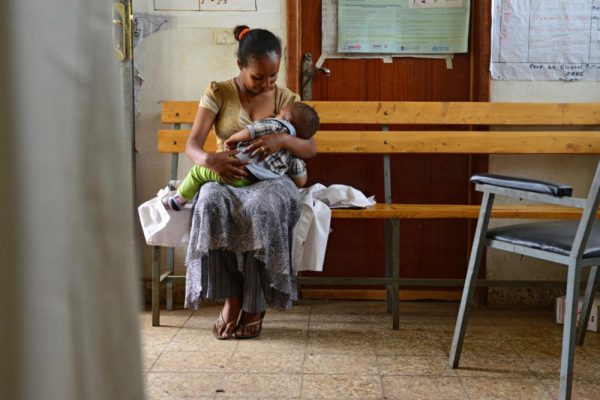The United Nations Children Education Fund (UNICEF) says 103,742 children die annually in Nigeria due to lack of exclusive breastfeeding.
Mrs Ada Ezeogu, a UNICEF Nutrition Specialist, made this known at a media dialogue on Breastfeeding and Global Breastfeeding Collective.
It was organised by Child Rights Information Bureau, Federal Ministry of Information and Culture, sponsored by UK Department for International Development (DFID) on Friday in Ibadan.
Ezeogu spoke on “Breastfeeding Importance and Benefits to Children and The Role of UNICEF.”
The nutrition specialist, while decrying the low uptake of exclusive breastfeeding in Nigeria, said that the gap or lapses robbed 5.4 million children yearly of its benefits.
“Delaying breastfeeding for two to 23 hours after birth increases the risk of dying within 28 days of a baby’s life by 40 per cent.
“Based on UNICEF fact sheet, the low rate of Exclusive Breastfeeding (EBF) leads to 103,742 child’s deaths and translated to almost 12 billion dollars in future economic losses for the country.
“The summation of low cognitive development, low IQ and health costs in inadequate breastfeeding is estimated to cost the country economy 21 billion dollars per year or 4.1 per cent of its gross national income,” Ezeogu said.
She said that exclusively breastfed babies were 14 times less likely to die than those not breastfed.
“Breastfeeding reduces the incidence of death in newborns as they account for close to half of all deaths of children under the age of five.
“Breastfeeding is expected to be initiated within one hour after birth, the longer the delay, the higher the risk of death in the first month of life,’’ Ezeogu said.
She described breastfeeding or breast milk as a perfect food, best protection for child against an array of illnesses and diseases and all encompassing food for babies.
According to her, this has contributed to the country’s problem of chronic malnutrition resulting to the current 11 million malnourished under five children.
Ezeogu said that breast milk was key in the prevention of two leading causes of under five mortality, which were the childhood pneumonia and diarrhoea.
“Water is the greatest barrier to EBF and if mothers, families, communities, among other stakeholders are abreast of the level of water content of the breast milk, which is over 88 per cent, the rate of uptake of EBF will increase.
“This will afford the nation to realise or achieve the accrued benefits economically, educational, health, among others,” she said.
Also, Mr Geoffrey Njoku, the UNICEF Communication Specialist, said that dialogue was aimed at partnering with the media in increasing the rate of EBF in the country
In his remarks, Mr Tejinder Sadhu, the Chief of Field Office UNICEF, Akure, said that 13 per cent of child’s death would be averted, if 90 per cent of mothers could exclusively breastfeed their infants in the first six months of life.
Sadhu said that breastfeeding was beneficial to the national economy by assisting in lowering healthcare costs, increase educational attainment, as well as boosting activities.
“Breastfeeding is not one woman’s job, mothers need assistance and support from their healthcare providers, families, communities, employers and government so that they can provide their children the healthiest start to life.
“Together we can support them into breastfeeding, protect and help in ensuring the wellbeing of our future generations,” he said. (NAN)
FUA /AOM/GOK

